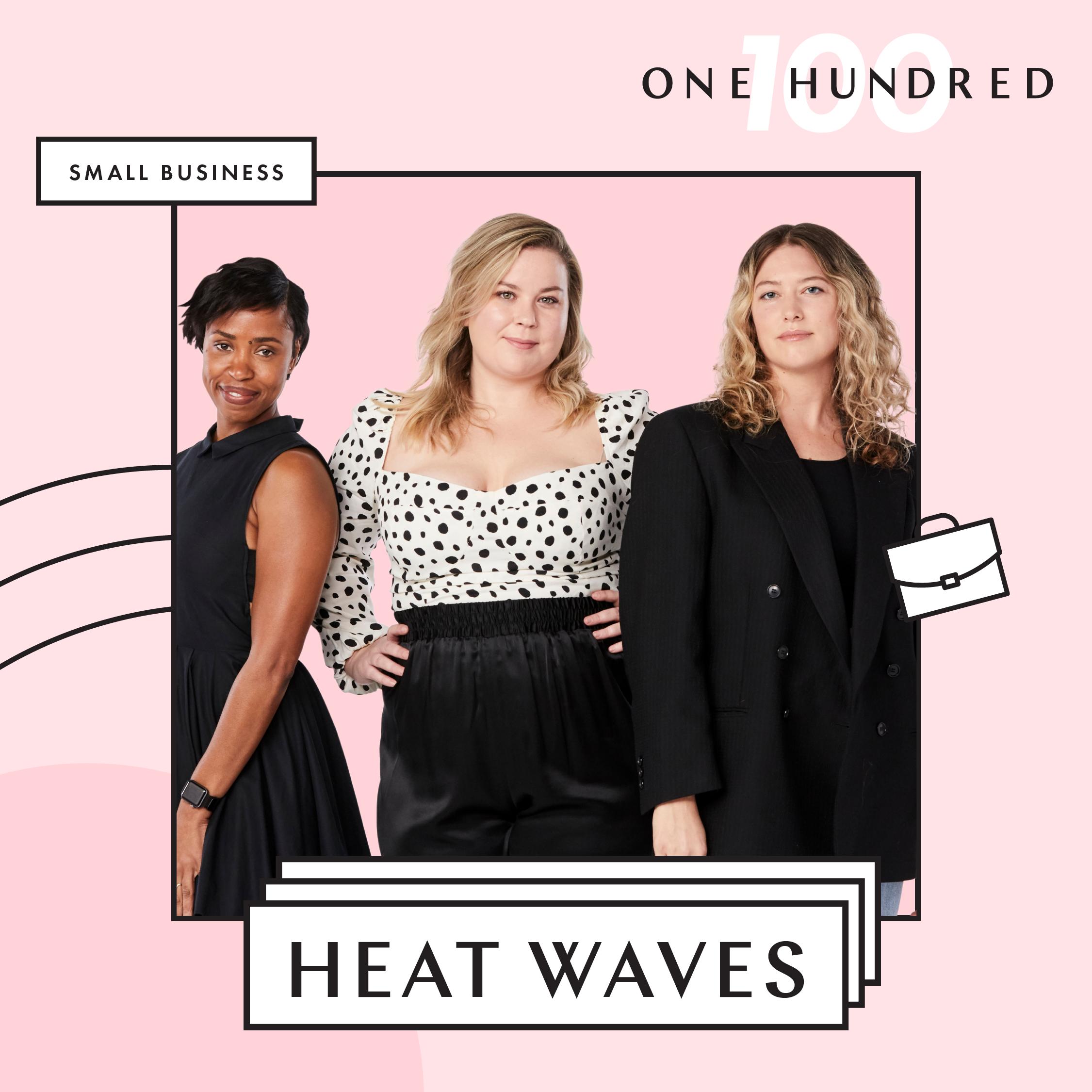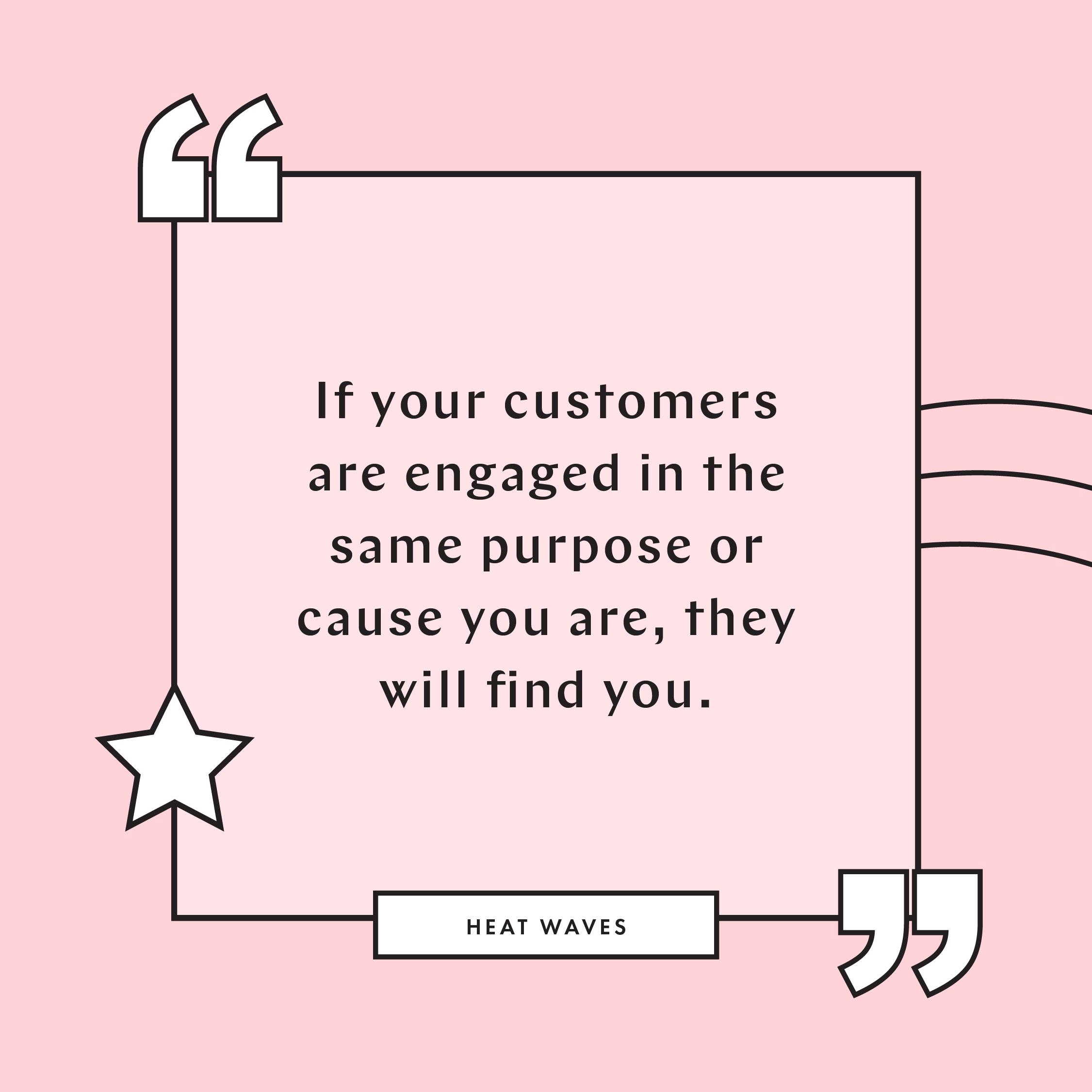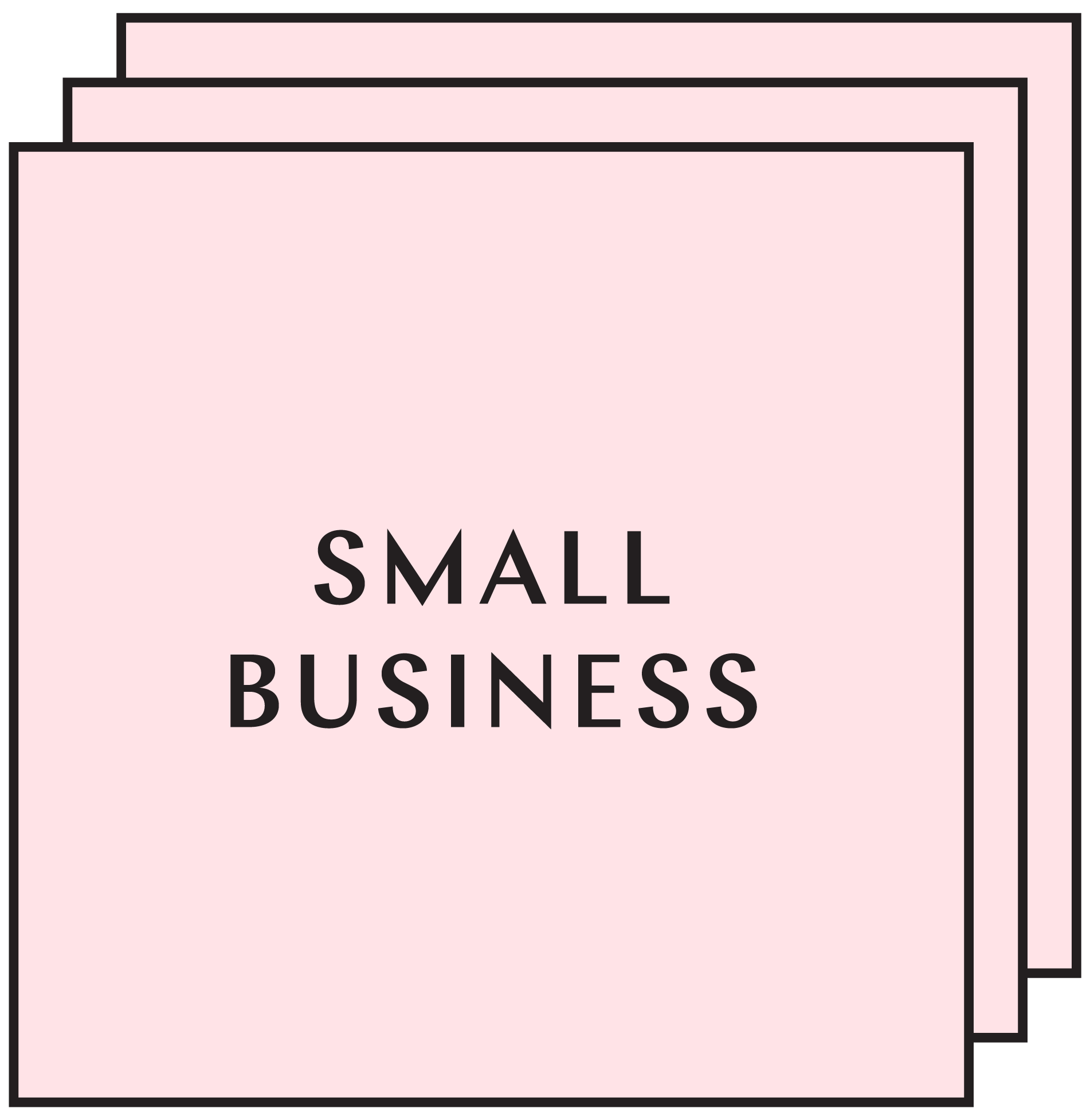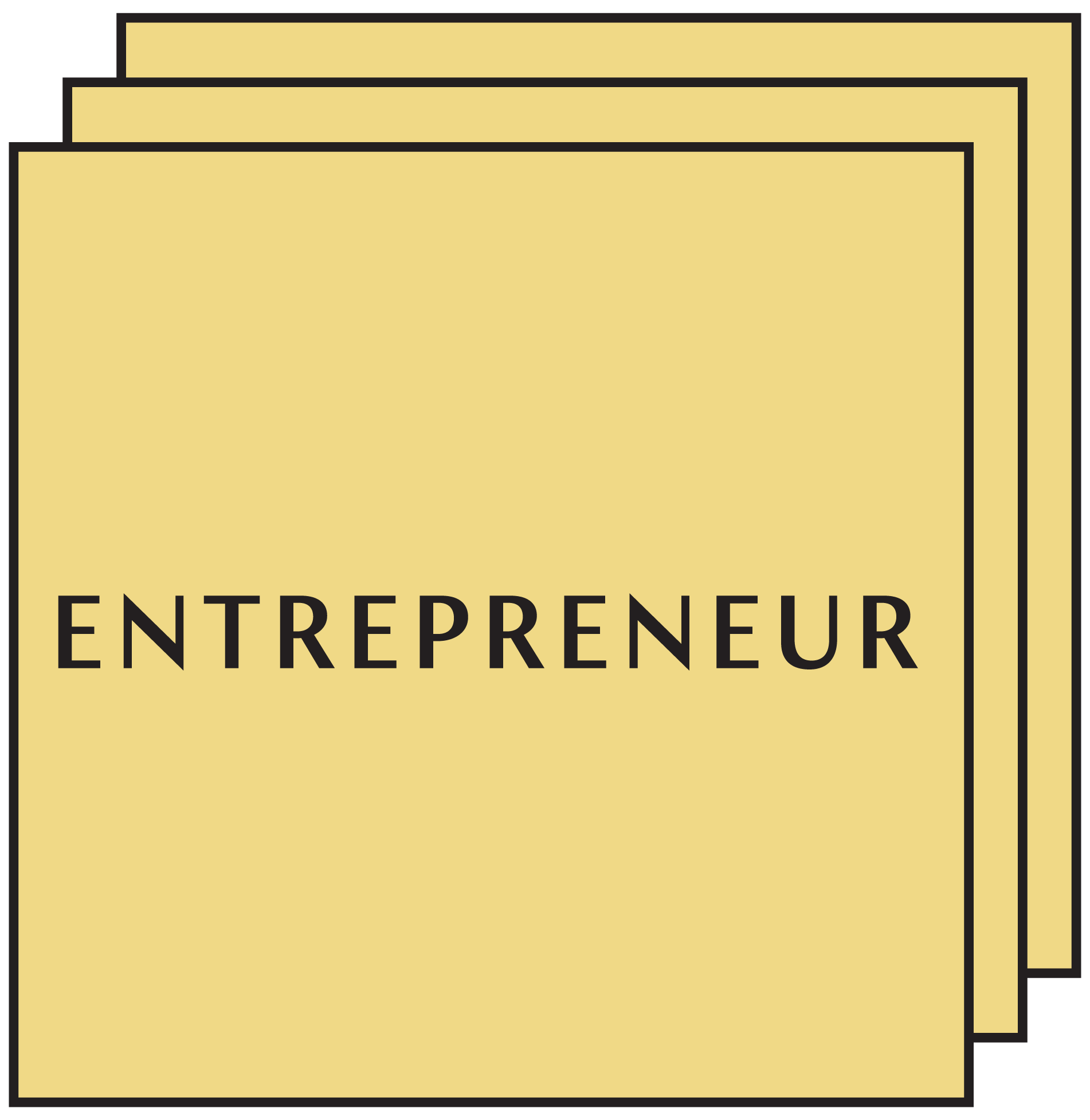Meet the women responsible for ensuring that the male-dominated, smoke-filled rooms of Mad Men remain a thing of the past.
After spending over a decade working for traditional agencies, Maura Cottle, Melissa Gore, and Melissa Bennett stuck out on their own to start Heat Waves, a women-led agency focused on developing digital experiences for beloved brands by the likes of Sephora, Sweetgreen, Sonos, and Reformation, to name a few.
Here, the creative collective of female founders shares how they built their disruptive digital agency from the ground up, including what it’s like working with major brands and why having a close personal relationship with your cash flow, P&L, and business model are essential for running a successful start-up.
CREATE & CULTIVATE: You are known as digital trailblazers in the industry, responsible for building experiences that are industry-firsts and true disruptors. What were your intentions when launching Heat Waves? What was your vision for the brand? How were you differentiating the brand from what was already available?
MAURA COTTLE, MELISSA GORE, & MELISSA BENNETT: We started Heat Waves because we wanted to do work that we felt passionate about with purpose-driven teams and brands. Our vision is to inspire the next generation of women and underrepresented people growing up in the historically patriarchal design and technology world. Inclusivity is at the core of every single thing we do at Heat Waves, from the clients we work with to the teams we build to the attitude and communication style we bring to the office. We create space for all people.
For those who are unfamiliar with Heat Waves, can you outline what you do for brands? What are the specific services you offer?
We are a design and technology studio that specializes in product innovation. Our services include branding, strategy, and product design and development.
You've each had experience working with major brands like Nike, Sonos, Sweetgreen, and FX, just to name a few. What advice can you share for new founders who want to work with big brands like that? How do they pitch successfully and get the business?
To get into the room with big brands, you need a reason to be there. Think about what you can bring to the table that's unique, valuable, or exciting. Be the meeting that people look forward to. Evaluate your networks and relationships for opportunities. Get specific about what you want and why.
Once you’re in the room, our philosophy is to make a pitch as interactive as possible. It’s not Mad Men; it’s actually just having a conversation with people who are also passionate about what they do and want it to be great. We identify the most interesting challenges, opportunities, insights or ideas for a specific brand and use that as an anchor to provoke conversation in the room. We find this approach is less about selling, and more about making sure everyone leaves the room with something tangible and understanding of what it’d be like to work together.
“To get into the room with big brands, you need a reason to be there. Think about what you can bring to the table that’s unique, valuable, or exciting.”
Being a founder is never a smooth path. What are some of the biggest lessons you've learned through the process of starting Heat Waves? What have been the biggest challenges? Why?
We have learned to be vulnerable and trust each other through this process. We are always learning how to be better partners.
We are a passionate team that loves to say “yes” to amazing clients who have ambitious plans. We put the work first which can enable scope creep and over-delivering, which is not always ideal for a small growing business.
Communication is half the work for any deliverable. Have you ever been to an escape room with people who don't communicate? You won’t make it out of there. It leads to frustration and inefficiencies. Doing everything perfectly won’t matter if you don’t communicate. We have learned that this isn’t easy or the same for everyone. It takes empathy, patience, and trust in your team.
When you hit a bump or hurdle in your career, how do you #FindNewRoads + switch gears to find success?
Try to take a hard look at any perceived failure to see what you can learn from it. Identify things you can improve or change within your control, and let go of everything else. Take a step back and try to really understand what success looks like to you. Then find a mentor.
You've achieved so much success since your launch. What do you wish you could go back and tell yourself when you were first starting out? Why?
Flashback to two years ago. We’re sweating in a garage and pitching Sonos with some staged artwork behind us. We would tell those ladies to hoard every dollar and every cent to see what you can do in a year. Be more aggressive and focused. You’re too small to be an everything shop. It's easier to make decisions when you have money in the bank.
You are in the business of developing unique brands. What advice can you share for new founders/small business owners who want to create a unique brand that stands out from the competition? How do you create a brand that lasts?
If your brand was a person, who would they be? It’s not just what they look like, or what they can do for you, but how they make you feel. If you are coming from a source of truth and self-awareness, your brand will stand out.
There are so many channels for connecting with your customers and community—plus, the newsletter has made a comeback. What are your thoughts on this medium? And what other channels or platforms do you recommend? How can a brand be visible in a saturated space?
People love great content no matter what form it comes in. If it’s conveniently placed in my inbox, then that's fantastic. Our clients know they have to be deliberate and compelling in their ongoing conversation with customers. For example, Reformation emails feel like your witty friend sharing things they know you'll like.
Instagram is being hacked at the moment to support longer-form content. It's no longer just a single hashtag in your caption but a full thought, a blog post, an article. It’s also about building one-on-one relationships with consumers is much more important in the DM world we live in.
In the past, the mentality was "go where your audience already is." We are testing the hypothesis that the future of community and content will be more specific destinations for niche topics and causes regardless of platform. If your customers are engaged in the same purpose or cause you are, they will find you.
When you're a small business you have to fall in love with the numbers. What have been some of the hardest money lessons you've learned along the way? What is your #1 money tip for small business owners? Why?
Have a close personal relationship with your cash flow, P&L, and business model. Never stick your head in the sand when things get hard. The more in touch you are, the more precise you can be with forecasting and hitting or changing your targets.
Social media always shows us the highlight reel but reality can be very different. Can you recall a mistake you made since launch and what did you learn from it? How did you turn it into an opportunity?
Speaking of highlight reels, as a new brand, we felt pressure to speak up and be cool on Instagram. Our approach failed hard for one obvious reason: we jumped into execution without a clear strategy. We got lots of great feedback but from the wrong people and for the wrong reasons. We had to confront the problem head-on. We were able to come together to create a more genuine experience that truly reflects who we are.
What advice would you give to young entrepreneurs who have an idea but don’t know where to start to execute it?
Make sure you are making something people really want. Talk to as many people as you can to identify your demographic and be sure it's viable.
Photographer: Jenna Peffley
Hair: Styled by OGXpert & Celebrity Hairstylist Jillian Halouska
VIEW THE FULL CREATE & CULTIVATE 100 SMALL BUSINESS LIST HERE.















